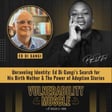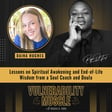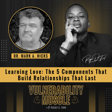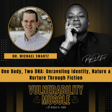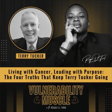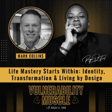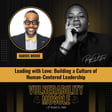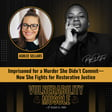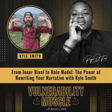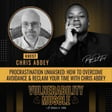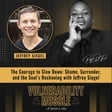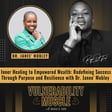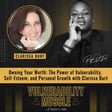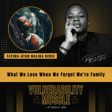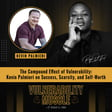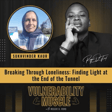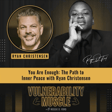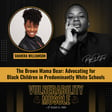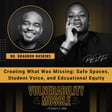
046 - The Land of Opportunity—and Oblivion: What America Misses About Immigrants
In this soul-stirring episode of Vulnerability Muscle, host Reggie D. Ford sits down with Silvia Garcia-Romero, Director of Diversity and Inclusion at Sentara Health, for a raw and revelatory conversation about immigration, identity, and inclusion. At just 10 years old, Silvia crossed the U.S.–Mexico border undocumented, guided only by faith, love, and the hope of family reunion. What unfolded afterward is a journey of resilience—growing up in a trailer with eight children, learning English as a second language, and rising above systemic barriers to become a powerful voice for equity in healthcare.
Silvia shares the unfiltered truth of what it means to navigate a country where language can be both a barrier and a weapon, and how moments of marginalization became fuel for her purpose-driven leadership. She offers moving reflections on childhood memories, the sacrifices of her parents, and the emotional toll of assimilation—revealing how her life’s hardships laid the groundwork for a mission that’s about more than a job title; it’s a calling.
Together, Reggie and Silvia confront societal misconceptions about DEI work, challenge xenophobic mindsets, and explore what it takes to humanize healthcare—one story, one conversation, one act of inclusion at a time.
This episode is a must-listen for anyone seeking to understand the immigrant experience, the real meaning of vulnerability, and the transformative power of compassion.
Contact Information:
LinkedIn: https://www.linkedin.com/in/silviagarciaromero/
